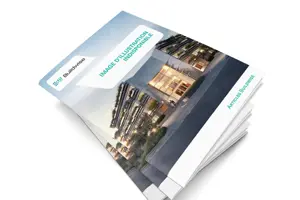Several studies have shown the feasibility and thermal potential of gypsum plaster with microspheres of PCM, but very few of them investigated an approach with practical and standards concern. In this work, different characterizations are performed according to European standards on a standard gypsum plaster and two different gypsum plasters formulated with 20 wt.% of PCM microspheres. A material is experimentally made by mixing conventional gypsum and PCM microspheres, whereas the other is an already prepared commercial mix. For the laboratory material, the addition of PCM increases the consistency of the fresh paste of plaster. In order to reach a consistency in agreement with the standards more water is required. This higher amount of water causes further issues on the densification and cohesion properties. In contrary, the properties of the commercial mix are closer to a common plaster. It is therefore assumed that the commercial material incorporates thinner additives. In view of these results, it is assumed that most of the drawbacks due to the addition of PCM microspheres in gypsum plasters could effectively be encountered by adequate addition of additives in order to reduce the amount of water, and binding resins in order to improve the adhesion and mechanical properties.
